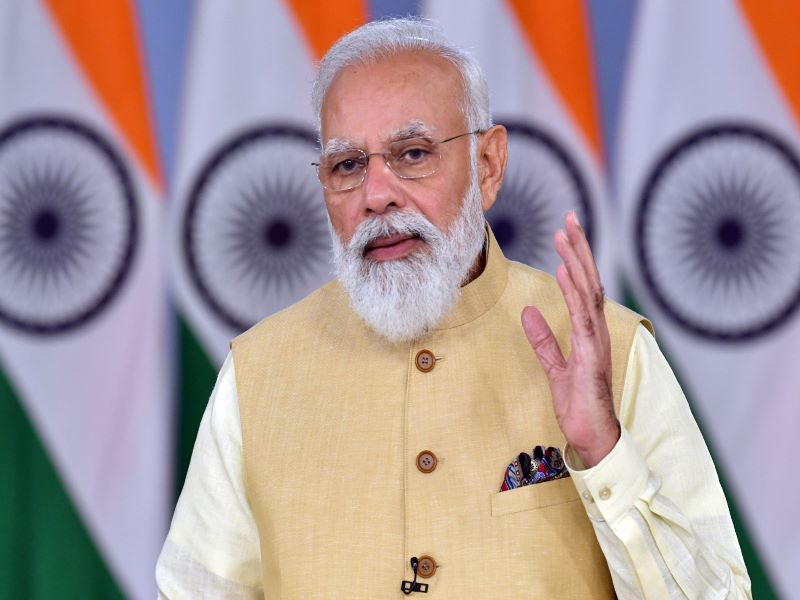
Cabinet approves Medical Devices Sector policy aiming growth from present $11 bn to $50 bn in next 5 yrs
New Delhi/IBNS: A Union Cabinet meeting chaired by Prime Minister Narendra Modi approved the National Medical Devices Policy, 2023 Wednesday with the aim to bolster India as the global leader in the manufacturing and innovation of medical devices by achieving a 10-12% share in the expanding global market over the next 25 years, the government said in a statement.
The policy is expected to help the medical devices sector grow from the present $11 billion to $50 billion by 2030.
The policy lays down a roadmap for accelerated growth of the medical devices sector to achieve the following missions viz, access & universality, affordability, quality, patient-centred and quality care, preventive & promotive health, security, research and innovation, and skilled manpower, it said.
To ensure ease of doing research and business a Single Window Clearance System for licensing of medical devices will be set up, coopting all the stakeholder departments/organizations such as AERB, MeitY, DAHD, etc.
The role of Indian Standards like BIS and designing a coherent pricing regulation will be followed to balance patient safety with product innovation.
Large medical device parks, clusters equipped with world-class common infrastructure facilities in proximity to economic zones with requisite logistics connectivity as envisioned under the National Industrial Corridor Program and the proposed National Logistics Policy 2021 under the ambit of PM Gati Shakti, would be pursued with the state governments and industry for better convergence and backward integration with medical device industry
The policy envisages promoting Research & Development in India and complements the department’s proposed National Policy on R&D and Innovation in the Pharma- MedTech Sector in India. It also aims at establishing Centres of Excellence in academic and research institutions, innovation hubs, ‘plug and play’ infrastructures and support to start-ups.
Along with recent schemes and interventions like Make in India, the Ayushman Bharat program, Heal-in-India, and the Start-up mission, the policy encourages private investments, a series of funding from Venture Capitalists, and also Public-Private Partnerships (PPP).
In order to have a steady supply of skilled workforce across the value chain such as scientists, regulators, health experts, managers, technicians, etc., the policy envisages for skilling, reskilling, and upskilling of professionals in the medical device sector, we can leverage the available resources in Ministry of Skill Development and Entrepreneurship
The policy will support dedicated multidisciplinary courses for medical devices in existing institutions to ensure the availability of skilled manpower for futuristic medical technologies, high-end manufacturing and research, to produce future-ready MedTech human resources and to meet the evolving needs of the sector
To develop partnerships with foreign academic/industry organizations to develop medical technologies in order to be an equal pace with the world market.
The policy envisages the creation of a dedicated Export Promotion Council for the sector under the department which will be an enabler to deal with various market access issues:
Initiate studies and projects for learning from best global practices of manufacturing and skilling systems so as to explore the feasibility of adapting such successful models in India.
It plans to promote more forums to bring together various stakeholders for sharing knowledge and building strong networks across the sector.
“The Indian medical devices sector’s contribution has gained further prominence as India supported the domestic and global battle against COVID-19 pandemic through the large-scale production of medical devices and diagnostic kits, such as Ventilators, Rapid Antigen Test kits, Real-Rime Reverse Transcription Polymerase Chain Reaction (RT-PCR) kits, Infrared (IR) Thermometers, Personal Protective Equipment (PPE) Kits & N-95 masks,” said the statement.
The medical devices sector in India is a sunrise sector that is growing at a fast pace.
The market size of the medical devices sector in India is estimated to be $11 billion or approx. Rs 90,000 crore in 2020 and its share in the global medical device market is estimated to be 1.5%.
The Centre has already initiated the implementation of the PLI Scheme for medical devices and support for the setting up of four medical device parks in Himachal Pradesh, Madhya Pradesh, Tamil Nadu, and Uttar Pradesh.
Under the PLI scheme for Medical Devices, till now, a total of 26 projects have been approved, with a committed investment of Rs 1206 crore, and out of this, so far, an investment of Rs 714 crore has been achieved.
A total of 14 projects producing 37 products have been commissioned and domestic manufacturing of high-end medical devices has started which include Linear Accelerator, MRI Scans, CT-Scan, Mammograms, C-Arm, MRI Coils, high-end X-ray tubes, etc. The remaining 12 products will be commissioned in the near future.
Five projects out of a total of 26 projects have been approved recently, under Category B, for domestic manufacturing of 87 products/product components.
Support Our Journalism
We cannot do without you.. your contribution supports unbiased journalism
IBNS is not driven by any ism- not wokeism, not racism, not skewed secularism, not hyper right-wing or left liberal ideals, nor by any hardline religious beliefs or hyper nationalism. We want to serve you good old objective news, as they are. We do not judge or preach. We let people decide for themselves. We only try to present factual and well-sourced news.







